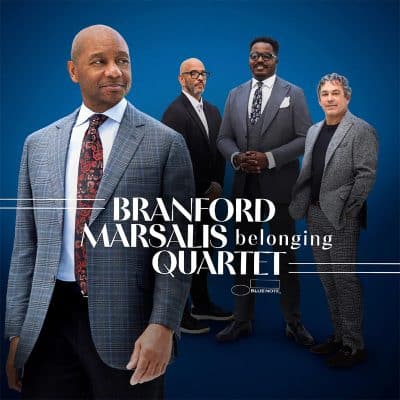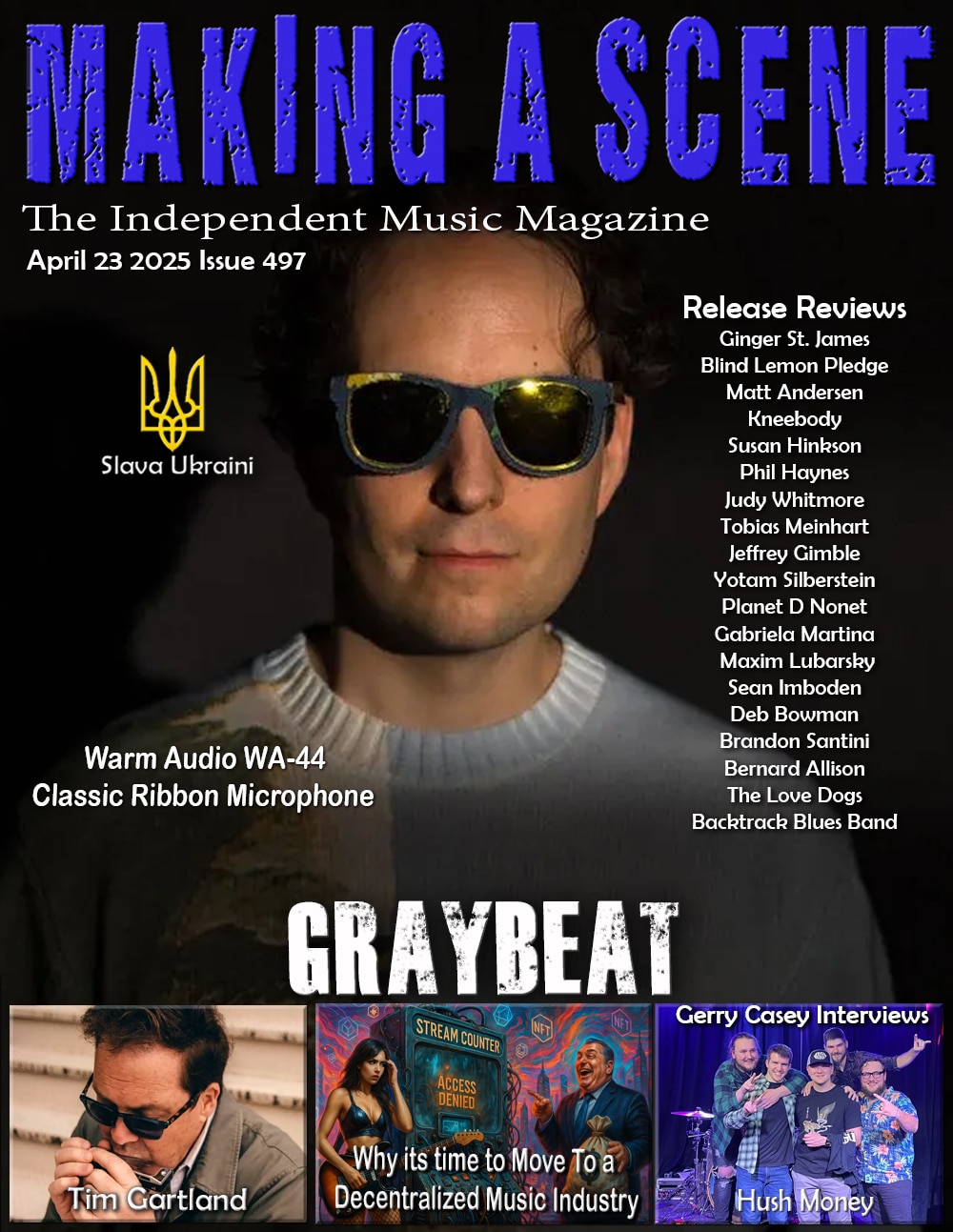Branford Marsalis Quartet Belonging
 Branford Marsalis Quartet
Branford Marsalis Quartet
Belonging
Blue Note
History informs us that Blue Note Records has a knack for signing saxophonists already established in their careers. Some like Kenny Garrett didn’t stay long but the label can point to 25 albums from Joe Lovano, Charles Lloyd’s prolific output since 2015, and Joshua Redman’s signing in 2023. So, on that point it’s not surprising to see Branford Marsalis come aboard with his long-running quartet. Marsalis has long proven that he may well be the most versatile saxophonist of all those mentioned, performing as a classical soloist with symphony orchestra as well as composing a symphony for a full classical orchestra, composing scores for motion pictures and Broadway shows and as the recipient of Grammy Awards, a Emmy nomination, Tony nominations, a Drama Desk Award, and the ultimate jazz acknowledgement, NEA Jazz Master. And that’s not to mention his work with the Grateful Dead and other groups outside of jazz.
Here he and pianist Joey Calderazzo (since 1999), bassist Eric Revis (since 1996) and drummer Justin Faulkner (since 2009) interpret Keith Jarrett’s 1974 album Belonging. Jarrett’s European Quartet featured saxophonist Jan Garbarek, bassist Palle Danielsson, and drummer Jon Christensen. In the late ‘70s Marsalis was only familiar with the pianist’s solo work but Kenny Kirkland introduced him to Jarrett’s 1979 My Song. After that, Marsalis purchased every one of Jarrett’s European Quartet recordings. Similarly, they were about to record “The Windup” from Belonging on the quartet’s most recent recording, 2019’s The Secret Between the Shadow and the Soul when Revis suggested they just record the whole album.
So, as they’ve done on classics by Mingus, the MJQ, and John Coltrane, they apply their own stamp to Jarrett’s 50-year-old gem, applying contemporary flourishes along the way. One aspect that is striking throughout is the way Marsalis’s saxophones and Revis’ bowed bass blend together, sounding almost like a string section. In suggesting they cover it, Revis indicated they “could do things with it.” Marsalis indicates that the purpose of his group is to be more like a chamber group than a jazz group. That comes across in spades in several places while others are rooted in swing, and soul-jazz.
Lively opener “Spiral Dance” features Calderazzo’s introductory piano improvisation. Marsalis plays tenor, his full tone spinning the melody adorned with bountiful improvisations. while Calderazzo also contributes a swinging solo to the the churning rhythms of the bass-drum tandem. Around the six minute mark, Revis keeps up the momentum with his sturdy plucking, one of the few where he is in pizzicato rather than arco mode. The folkloric ballad “Blossom” is a great example of how these four can literally finish the other’s sentences, presenting the first example of the unison arco bass, here with the tenor, as Calderazzo uses plenty of space in his sweetly delicate solo to complete the sumptuous sonic palette. Just as “Blossom” has a European tinge, Marsalis claims they bring the “spirit of Donny Hathaway Live to “Long as You Know You’re Living Yours.” Faulkner’s beats are heavier, Calderazzo and Revis lay down a funky groove and Marsalis takes a soulful flight on his tenor.
On the title track Marsalis confesses to playing much like Garbarek did on the original. Garbarek was a terrific soprano player and Marsalis plays soprano on this lovely piece, which glows in the European vein much like “Blossom” with Revis’s stunning arco tightly wound with the soprano. Just as you might have been anticipating at least some NOLA flavor, “Windup” is infused with second line rhythms and even some vocal parts as it grabs you by the neck and shouts – “get your booty moving.” Calderazzo is especially unleashed as is Faulkner. Closing “Solstice” starts out as the jazz version of slow blues with solos from Revis (pizzicato) and Calderazzo. When Marsalis enters, he is blowing ferociously, bringing the piece to a peak, before it settles back into its initial calm.
In just this one album, an interpretation no less, we hear swing, the chamber-like influence of European classical and jazz, soul-jazz, New Orleans jazz, and exemplary soloing from each quartet member. The telepathic and spiritual connectivity of the Branford Marsalis Quartet is unlike any quartet playing today, now that Wayne Shorter has since passed. Welcome to Blue Note.
– Jim Hynes
BUY NOW
Buy Us a Cup of Coffee!
Join the movement in supporting Making a Scene, the premier independent resource for both emerging musicians and the dedicated fans who champion them.
We showcase this vibrant community that celebrates the raw talent and creative spirit driving the music industry forward. From insightful articles and in-depth interviews to exclusive content and insider tips, Making a Scene empowers artists to thrive and fans to discover their next favorite sound.
Together, let’s amplify the voices of independent musicians and forge unforgettable connections through the power of music
Make a one-time donation
Make a monthly donation
Make a yearly donation
Buy us a cup of Coffee!
Or enter a custom amount
Your contribution is appreciated.
Your contribution is appreciated.
Your contribution is appreciated.
DonateDonate monthlyDonate yearlyYou can donate directly through Paypal!
Subscribe to Our Newsletter
Discover more from Making A Scene!
Subscribe to get the latest posts sent to your email.













































